Open Roads review
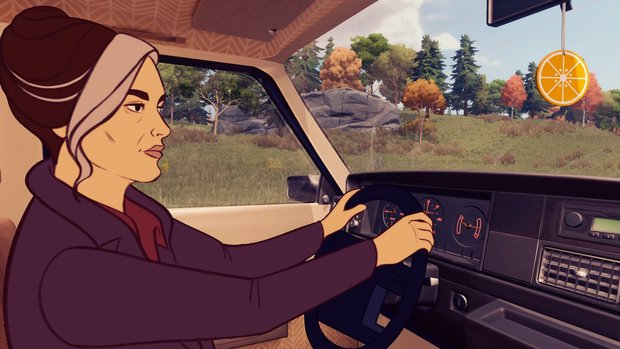
- 0 Comments
Lack of gameplay is sufficiently paved over by a well-written and believably acted exploration of relatable family tensions
How well do you know your parents? Or better yet, your grandparents. I mean really know them – not as they are now but before little ol’ you came along. Hopefully you’ve already taken – or will take – the time to ask them about their life experiences, but chances are that for many of us the answer to that question is “not very.” Oh sure, maybe a grasp of the basics and a few oft-retold family anecdotes, but not the real nitty gritty of their own individual selves, filled with the same hopes and dreams, fears and triumphs, joys and despairs we all feel. Open Roads is a short narrative-driven game spent intimately exploring just such a family history through three generations – the eldest of them in memoriam. There isn’t much in the way of gameplay, and its presentation is rather threadbare, but it’s a thoughtful, earnest, well-acted tale that does a good job of capturing the emotional ups and downs of its mother/daughter relationship (or at least, I assume it does based on my extensive experience as a man).
Ultimately credited to the “Open Roads Team,” this game was originally conceived by the creators of the acclaimed Gone Home and its sci-fi follow-up Tacoma. It shares plenty in common with both, with its first-person, free-roaming exploration of deserted spaces in search of personal clues left behind. But Open Roads’ DNA more closely resembles the former, with its familiar recent-history American setting (here it’s 2003 Michigan) and focus on strained relationships and hidden family secrets. Where it notably departs from both of its predecessors is the addition of a second main character. You only ever control one, but the ongoing dialogue between the two makes a fundamental difference in how the experience plays out.
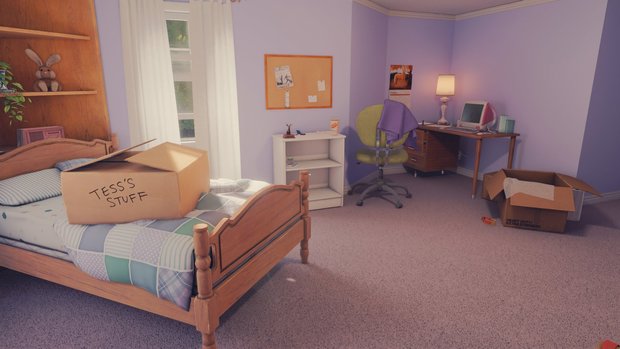
You play as Theresa “Tess” Devine, a sixteen-year-old student and budding entrepreneur who lives with her now-single mother Opal while Dad is off doing his own thing across the country, leaving the women in dire financial straits. Tess has a good long-distance relationship with her father, communicated solely through text messages on a period-appropriate cell phone, but her mother clearly harbours some bitterness towards him, creating something of an unspoken rift with Tess. Making matters worse, Opal’s mother Helen has just recently passed away after a debilitating illness that forced Opal and Tess to move in to care for her, and now the house is being sold out from under them. They have only a week to pack, move out and find a new place to stay, all while dealing with their grief.
It’s a rather dramatic premise, but Open Roads chooses to introduce it in the most boring way possible. Grandma Helen is already gone, and with no introductory cinematic at all, the “action” begins with Tess packing up things in her half-emptied room, the rest of the house in similarly pre-move disarray. It’s a way to offer a little insight into Tess, examining knickknacks and mementoes to glean personal details, like a mysterious plane ticket the teen is concealing from Mom, a bulletin board displaying her love of Bigfoot and the tale of buried bootlegger treasure, and messages revealing her close friendship with bestie Francine. Some of these things you can choose to pack, but this appears to be for achievement purposes only. The search then broadens to the rest of the house, but without any direct, tangible sense of the emotional stakes involved in moving out under such stressful circumstances, it’s entirely unaffecting. I couldn’t wait for something to actually happen.
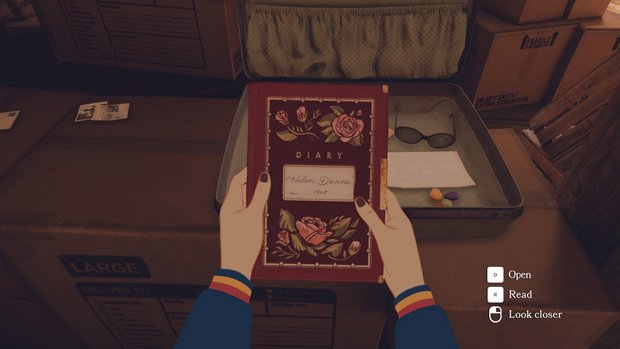
Eventually something does, when Grandma’s old diary turns up in a secret compartment in the attic. Should we or shouldn’t we read it? Open Roads offers numerous player choices throughout, but most only have superficial consequences that impact the next bit of dialogue – admittedly in interesting ways at times, giving you the opportunity to roleplay Tess’s character and the type of relationship you want to nurture with Opal. The main storyline will continue unimpeded either way, so of course you’re going to read the diary! And it’s a good thing you do, because it’s there you’ll learn of Helen’s secret life with a mystery man! Did Grandma have – gasp! – an affair many years earlier? Tess is excited to follow the trail of clues to a decades-old family summer home, while the ever-responsible Opal is reluctant to leave important tasks untended and dredge up ghosts that are perhaps best left undisturbed. As you can probably imagine, begrudgingly she relents. Road trip!
Despite its title, Open Roads doesn’t spend much time on the actual road, though there are a few driving sequences between the three main locations: Grandma Helen’s house, the run-down old summer “mobile home” (not a trailer!), and a final destination best left to discover for yourself, with a crammed-in filler stop at a budget-friendly motel sandwiched in between. The road sequences are particularly interesting, however. They don’t take long to play, but they represent long hours of tedium and closed confinement, making them ripe for the rawest, most honest conversations between mother and daughter.
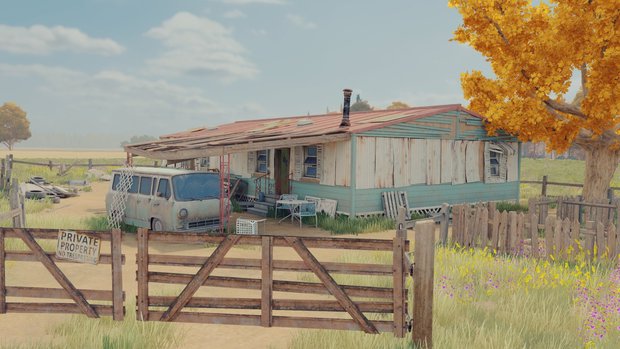
Dialogue plays a huge part in the Open Roads experience. Wise choice, then, to cast Keri Russell (Felicity, The Americans, The Diplomat) as Opal and Kaitlyn Dever (Last Man Standing, Booksmart, Dopesick) as Tess. It was a major coup to land such accomplished actresses, and both do an excellent job of conveying the many layers of their characters and the constantly changing dynamic between them. I enjoyed their well-written banter during lighter moments, and bought into the rising tension as cracks in their relationship start to rupture, as well as the more touching moments of shared tenderness. Occasionally I found the tone a little too glib for the circumstances, as the mood defaults to “everything’s hunky dory” when clearly everything is NOT, but I chalk that up to direction more than the performances.
There isn’t really a whole lot to actually DO in the car other than talk. You can fiddle with a few things, but there’s little to occupy your attention besides Tess’s phone in the glove compartment for checking in with Francine and Dad. This continues even when it’s time to get out and stretch your legs, when you’re free to walk (never run) around the different settings on foot via keyboard/mouse or gamepad. Exploration is limited largely to picking up and looking at items indicated as hotspots when you draw near, but there seem paradoxically to be both too many and too few possibilities. Yes, you can open just about every drawer and cupboard, and pick up plates and fishing lures and magazines, but most of the clutter is empty calories. The few things that shine any real light on the story and characters are confined largely to drawings, letters, postcards and news clippings that are conveniently scattered around for you to find. They’re worth finding, and kept me motivated to keep looking, but surely the designers could have done a better job of environmental storytelling. You’ll know you’ve found something relevant when an option to talk to Opal about it appears. I lost track of how often another “Hey Mom!” trigger launched another mother-daughter talk, even if Opal is nowhere nearby when it happens.
The sudden appearance of Opal at your beck and call represents one of the game’s major failings, which is its dearth of animation. There’s an excellent sense of movement in the car as the scenery around you drifts slowly by (Mom’s a stickler for the speed limit), but everywhere else it seems like all the money went to the Hollywood voice talent with not enough left over for much else. Opal is never visible while you explore, and there are numerous fade-to-blacks for major actions that beg to be shown. It’s not that the game really suffers without them, but they’re notable omissions. Even during conversation there’s no lip movement at all, which is highly unusual for a fully voiced game.
In lieu of lip sync, the character models do slightly animate when talking, with varied poses and facial gestures to help convey emotion. However, another oddity is that the models are done in a distinctly hand-drawn, almost cartoon style, while the environments have a much more realistic look. It’s jarring at first, and I still don’t really understand the rationale behind it, though I was surprised at how quickly I got used to it. The graphics certainly won’t wow you, but they’re crisp enough to get the job done, and it was a nice touch to have the car trips in particular take place during alternate times of day with different weather. The dreary grey clouds of the overcast final location cast a pall that suits the gravity of the moment, while one car scene is bathed in the warm orange glow of sunset, with other scenes falling somewhere in the middle.
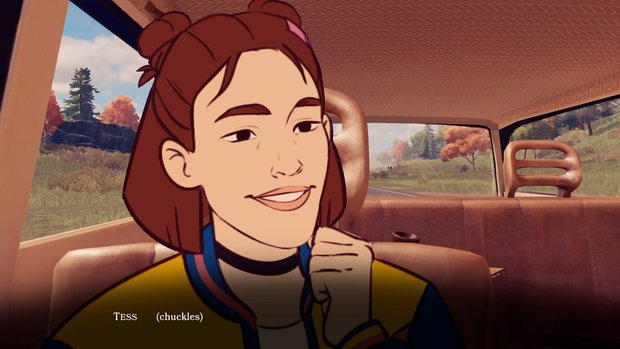
Music and ambient audio are given short shrift as well. While the occasional track does briefly chime in, there’s nothing worth listening to on the car radio. You can tune the frequency up and down, so I was sure there’d be a variety of different tunes to play while you drive, but nope. Ditto the radio in Tess’s room, which has only one station playing some sort of xylophone-sounding song – not unpleasant, but I sure had different tastes when I was sixteen! Background effects are barely noticeable at the best of times. Granted, the abandoned locations wouldn’t organically generate much sound, and the silence keeps the focus on the characters where it belongs. The dialogue sequences are so frequent yet intermittent that it might have been difficult to implement a seamless score. Still, there were definitely times when I found the experience too quiet for its own good, and a little well-place music wouldn’t have gone amiss for the more emotional moments.
And there are indeed several of those before all is said and done. For the most part the script keeps things fairly even-keeled and the characters relatable: Tess is a good kid, not a sulky emo teen, while Opal is a caring if stressed-out single mom who’s doing her best but already going through the grief of her mother’s passing and must now process some potentially momentous secrets about her family. They usually get along well, at least the way I played it – there are more antagonistic dialogue branches if you prefer extra bickering. But no matter what you choose, pressure points are inevitably triggered, tempers flare, and arguments erupt. Yet Opal and Tess’s interactions never (okay, rarely) feel over the top or unearned, their maturity and affection for each other always lingering below the surface even in the darkest moments, preventing them from ever spiraling out of control. I liked them both, each in their own way, and could easily believe them to be mother and daughter.
That’s not to say the story doesn’t reach a little too far. No spoilers, of course, but the entire plot is implausible, the coincidences to keep the story moving a little too convenient, and the ending more than a little far-fetched. And yet, always within acceptable limits to allow for suspension of disbelief and maintain interest. Not that it needs to do so for long, as the whole game takes only about two hours to complete, with nothing so much as a puzzle to slow you down beyond finding a key or tool needed to progress. It’s impossible to get lost, as the settings are self-contained and the latest (often only) objective is automatically scribbled into Tess’s journal. Attention is, and should be, always centered on the narrative, but a few tailor-made opportunities to involve at least some thinking were passed up in favour of moving things briskly along.
Whether you feel that’s a good thing or bad, really Open Roads is not so much a matter of finding out who the mystery man was (though you’ll definitely be eager to know) as it is exploring and deepening the relationship between Tess and Opal, and discovering more about who Grandma Helen really was. It definitely isn’t about the buried bootlegger treasure, which Tess teases early on. That disappointed me, as it would have added a welcome additional layer of actual “adventure” that feels sorely lacking. But I admit it wouldn’t have been a great fit with the familial story being pursued here, so it was probably a good call. Curiously, a lot of time is spent developing a whole other character, Opal’s sister August, whose only direct contribution is a single phone call. It’s an interesting backstory about two very different sisters who eventually grew apart, but in some ways I ended the game feeling like I knew its young protagonist less than I knew her aunt, which couldn’t have been the plan.
Final Verdict
More a quick jaunt for a single sitting than a lengthy road trip’s worth of exploration, Open Roads largely succeeds in hitting its target. It just doesn’t aim very high, content to offer up a gameplay-lite, talk-heavy narrative experience that unpacks the emotional baggage of three generations of Devine family women. As the spiritual descendent of Gone Home and Tacoma, it’s the least of the three games in its own bloodline, but its polished if bare-bones presentation is aided significantly by a solid script and professional voice acting that makes it feel similar to and yet distinctly different from its forebears. Anyone looking for challenging puzzles or an epic story will come away empty handed, but if you’re up for a thoughtful character drama, there’s enough familial intrigue and player agency here to warrant a pleasant little afternoon excursion, with time left over afterwards to reach out to loved ones of your own and get to know them better. You just might be surprised and delighted at what you find out.
Hot take
Open Roads is a short but emotionally stirring character drama that is, fittingly, more about the journey than the destination, without so much as a speed bump challenge to slow you down in the latest narrative adventure from the creators of Gone Home.
Pros
- Excellent voice acting by Keri Russell and Kaitlyn Dever in the main roles
- Well-written script believably represents mother-daughter dynamic
- Story provides ample motivation to see it through to the end
- Short play time prevents it from overstaying its welcome
Cons
- Deflatingly slow start
- Not much to actually DO
- Even less animation and sound than gameplay
- Frequent dialogue interjections during exploration breaks the flow
Jack played Open Roads on PC via Game Pass.


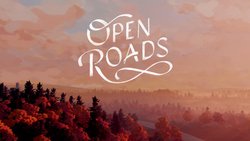








0 Comments
Want to join the discussion? Leave a comment as guest, sign in or register in our forums.
Leave a comment